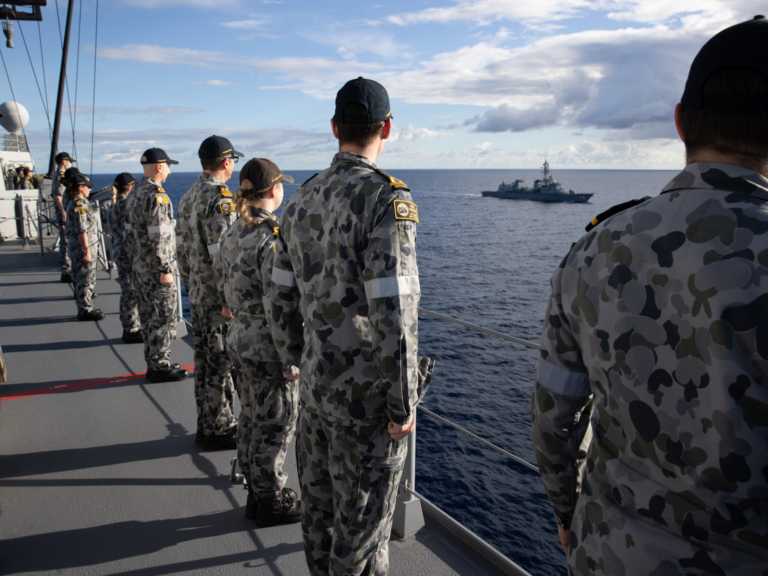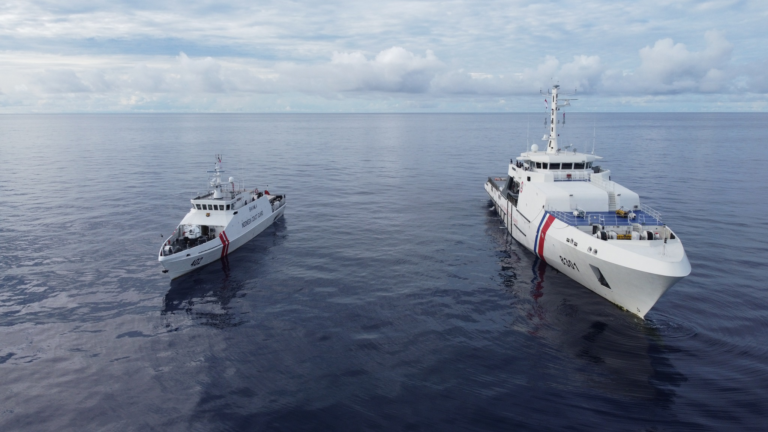
China has extended its maritime presence to rarely patrolled waters, with two Chinese coastguard vessels spotted near the northernmost province of the Philippines last week, close to Taiwan.
The Philippine Navy on Monday said the Chinese ships were seen “meandering” in waters off Batanes on August 7, Philippine media reported.
Batanes is an archipelago located closer to southern Taiwan than to Manila and sits within the Bashi Channel – a critical maritime chokepoint that would have strategic significance in the event of a conflict over Taiwan.
Analysts said Beijing appeared to be ramping up its presence in the waterway to deter the Philippines from intervening in any such conflict.
Tensions between the two countries have been rising over the disputed Scarborough Shoal, known as the Huangyan Island in China. On Monday, a China Coast Guard vessel collided with a PLA Navy destroyer while trying to expel Philippine vessels from the area.
China commented on the reported incident for the first time on Friday, with its Ministry of Defence blaming Philippine vessels for “dangerous manoeuvres such as high-speed ramming, sharp turns and crossing in front of Chinese vessels, creating a complex and urgent situation at sea and seriously infringing upon China’s sovereignty and rights”.
Zheng Zhihua, an associate professor specialising in maritime affairs at Shanghai Jiao Tong University, said Beijing’s recent manoeuvres in the waterway signalled its frustration with Manila’s growing ties with Taipei.
He expected Chinese naval and coastguard activities near the Bashi Channel and the Philippine Sea to intensify.
“Military exercises in this area could become more frequent, serving as a strategic move to deter the Philippines from intervening in cross-strait issues,” Zheng said.
Manila would not be able to avoid being drawn into a conflict between its ally Washington and Beijing over Taiwan, citing geographical proximity and the more than 160,000 Filipino workers on the island.
China’s foreign ministry issued a stern rebuke and said it had lodged a formal protest with Manila over the remarks.
Beijing regards Taiwan as part of its territory and has not ruled out the use of force to bring the self-ruled island under its control. Most countries, including the Philippines and the United States, do not formally recognise Taiwan as an independent state but oppose any attempt to seize the island by force. The US is also legally bound to supply Taiwan with defensive weapons.
Collin Koh, a senior fellow at the S. Rajaratnam School of International Studies in Singapore, said he expected China would expand its maritime presence to the less disputed waterways, including to the east of the Philippines, which would force Manila to adjust its fleet operations.
He said more Chinese coastguard patrols could also bring more survey vessels to the area, which mostly falls within the Philippines’ exclusive economic zone that is abundant in minerals and fish stocks.
Chinese research vessels have been seen in the area and entered the EEZ. But under the United Nations Convention on the Law of the Sea, research activities by foreign ships within an EEZ must get authorisation from the coastal state.
“If the Chinese start to sail their coastguard vessels around the area more often, then you could expect research and survey vessels to come along,” Koh said. “[It would] force the Filipinos to disperse their already scarce resources to try to keep tabs on all these movements, all around the archipelago.”





